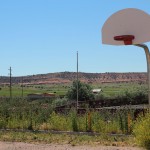
John Boehner speaking at the Values Voter Summit in Washington, D.C. (photo: Gage Skidmore/Wikimedia Commons)
29 September 15
The mainstream interpretation: John Boehner’s forced resignation as the Speaker of the House gives him too much credit.
 he
mainstream reaction to the forced resignation of John Boehner as the
Speaker of the House has been a kind of weary admiration. He fought the
good fight against the extremists in his Republican caucus, the
narrative goes, but his solid Midwestern virtues (he’s from Ohio) were
ultimately no contest for the extremism of the Tea Party.
he
mainstream reaction to the forced resignation of John Boehner as the
Speaker of the House has been a kind of weary admiration. He fought the
good fight against the extremists in his Republican caucus, the
narrative goes, but his solid Midwestern virtues (he’s from Ohio) were
ultimately no contest for the extremism of the Tea Party.
This
interpretation is far too generous to Boehner, whose failures, political
and substantive, were due mostly to cowardice. The tragedy of Boehner
is that he could have been a great Speaker, even on his own terms, but
instead his legacy is one of almost complete failure.
Boehner long made it clear that he was a dedicated
party man, who believed that what was good for the G.O.P. was good for
the country as well. This is how the issue of comprehensive immigration
reform came to be the true crucible of his speakership. Following
President Obama’s reëlection, in 2012, it was clear that Republicans had
to try to appeal to Hispanic voters. In March of 2013, Reince Priebus,
the chairman of the Republican National Committee, released a report
saying that the Party “must embrace and champion comprehensive
immigration reform.” In short order, many Republicans in the Senate,
including such prominent figures as John McCain and Marco Rubio, did
just that, and a bill which included a path to citizenship for a
majority of undocumented immigrants passed by a vote of sixty-eight to
thirty-two.
Boehner also supported immigration reform, at least in
its broad outlines—because he correctly saw that it was good for both
his party and his country. And there was no doubt that the reform bill
could pass the House, with the support of most Democrats and a
substantial number of Republicans as well. But Boehner’s Tea Party
colleagues in the House opposed immigration reform. So the choice for
Boehner, who controlled the House floor, was clear: pass a historic bill
that would be good for the Republicans and for the republic, or appease
the extremist elements in his party in hopes of hanging on to his
position as Speaker.
Boehner caved, refusing to bring the bill to the floor
for a vote, and he suffered the fate of all those who give in to
bullies; he was bullied some more. This year, the fight was over the
highway bill, another piece of popular legislation that Boehner himself
and a majority of the House (as well as the Senate and the President)
supported—as well they might, given that maintenance of roads and
bridges represents some of the basic work of government. But again the
Tea Party intimidated Boehner into keeping the bill off the floor,
depriving the Speaker of another major accomplishment.
Boehner adopted an extreme version of the so-called
Hastert rule, named for his predecessor as Speaker, Dennis Hastert, who
is now under indictment for alleged financial crimes connected to
blackmail payments (he has pleaded not guilty). The Hastert rule holds
that the Speaker should never allow a vote on a bill unless it’s
supported by a majority of the Republican caucus. But Boehner’s approach
was to keep bills off the floor that were opposed by a minority of
Republicans—the Tea Party caucus, which only numbers about
fifty—effectively giving them a veto over the work of the House. Nothing
came to the floor without their say-so, so that meant that nothing much
came to the floor except for symbolic exercises like votes to repeal
Obamacare or to defund Planned Parenthood.
When Boehner announced his impending departure, he
expressed pride that he had kept the government open (after a
sixteen-day shutdown in 2013) and raised the debt limit. This, to
paraphrase a famous Republican, reflects the soft bigotry of low
expectations. Keeping the government open and paying its debts are the
minimal undertakings of an elected body, not legislative triumphs. But
Boehner could point to almost nothing else that happened on his watch,
because the Tea Party would tolerate nothing else.
And what did Boehner’s cowardice in the face of the
Tea Party stalwarts get him? They forced him out anyway. Boehner built
his career around keeping his job, and he still failed. If Boehner had
allowed the passage of immigration reform, it’s entirely possible that
the Tea Party would have rebelled and evicted him—but at least he would
have had a substantial accomplishment to his credit. Instead, Boehner
tried nothing, accomplished nothing, and lost his job anyway. It’s the
legacy he deserves.

+66
#
2015-09-29 13:16
Mainstream
Republicans like Boehner allow fifty Tea Party idiots to run roughshod
over the entire legislative process, and as usual, We the People lose.
The entire Tea Party faction behaves like the emperor with no clothes. They should be hounded out of every capitol building in the country, preferably dressed in tar and feathers.
The entire Tea Party faction behaves like the emperor with no clothes. They should be hounded out of every capitol building in the country, preferably dressed in tar and feathers.
+55
#
2015-09-29 13:49
I don't know what scares me more the 50 Tea party idiots, or the idiots that voted them into office.
Stupid is as stupid does and stupid is getting a whole lot bigger lately.
Stupid is as stupid does and stupid is getting a whole lot bigger lately.
+23
#
2015-09-29 13:22
Can we dream that a few politicians may take instruction from Mr B 'selfdesdructio n and show some moral courage ? It did him no good to cave in over and over except to postpone his demise so......?





 ne
of the benefits of a presidential campaign is the character and
capability, judgment and temperament of every single one of us is
revealed over time and under pressure.” Since presidential hopeful Carly
Fiorina made that
ne
of the benefits of a presidential campaign is the character and
capability, judgment and temperament of every single one of us is
revealed over time and under pressure.” Since presidential hopeful Carly
Fiorina made that 


 rothers
and Sisters: I am not a theologian, an expert on the Bible, or a
Catholic. I am just a U.S. senator from the small state of Vermont.
rothers
and Sisters: I am not a theologian, an expert on the Bible, or a
Catholic. I am just a U.S. senator from the small state of Vermont.

 asting
the fight against climate change as an urgent moral duty, Pope Francis
in June urged the world to phase out highly-polluting fossil fuels.
asting
the fight against climate change as an urgent moral duty, Pope Francis
in June urged the world to phase out highly-polluting fossil fuels.











